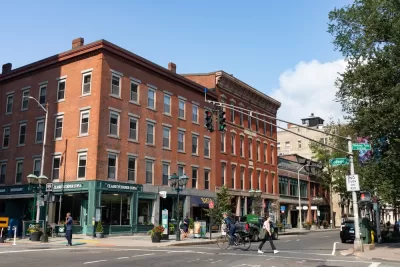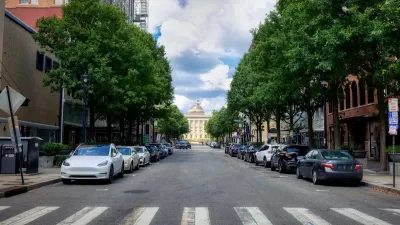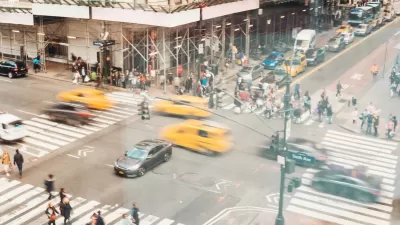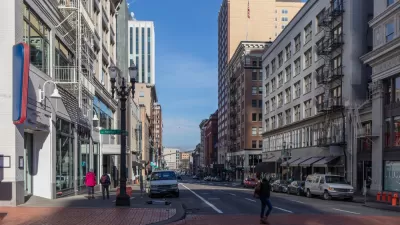The proposed legislation could energize efforts to eliminate fatal crashes and fix the structural flaws that make roads inherently more dangerous.

A bill making its way through the Connecticut state legislature would codify the state’s commitment to Vision Zero and require municipalities to actively plan for safer and more accessible roads for all users. In an op-ed published on CT News Junkie, Kerri Ana Provost argues in favor of the bill, pointing out that “One month into 2023, 42 collisions resulting in 43 pedestrian deaths during 2022 were entered into the [Connecticut Crash Data Repository] database.”
Provost parses the data to understand the nature of the crashes, revealing that pedestrian distraction did not factor into any of the fatal crashes in 2022. “Looking back at 2021, only two of the 58 victims were noted as being distracted, and the nature of it was described as being outside of a vehicle, not on a phone.”
Among other initiatives, the bill would require cities to create Complete Streets or Comprehensive Safety plans and allow automated traffic enforcement, which is shown to reduce serious crashes. Provost urges legislators to support the bill and its promise for systemic change, noting that making streets safe for all is about much more than just telling pedestrians to be more careful. “Instead of shunning victims of traffic violence for a split-second poor decision they may have made, we should look at how our system sets us up for failure.”
Traffic safety advocates around the country are making similar calls for reorienting road safety efforts toward addressing infrastructure and design issues rather than focusing singularly on pedestrian and driver awareness and education.
FULL STORY: Vision Zero Bill Would Address Causes of Pedestrian Crashes

Maui's Vacation Rental Debate Turns Ugly
Verbal attacks, misinformation campaigns and fistfights plague a high-stakes debate to convert thousands of vacation rentals into long-term housing.

Planetizen Federal Action Tracker
A weekly monitor of how Trump’s orders and actions are impacting planners and planning in America.

San Francisco Suspends Traffic Calming Amidst Record Deaths
Citing “a challenging fiscal landscape,” the city will cease the program on the heels of 42 traffic deaths, including 24 pedestrians.

Defunct Pittsburgh Power Plant to Become Residential Tower
A decommissioned steam heat plant will be redeveloped into almost 100 affordable housing units.

Trump Prompts Restructuring of Transportation Research Board in “Unprecedented Overreach”
The TRB has eliminated more than half of its committees including those focused on climate, equity, and cities.

Amtrak Rolls Out New Orleans to Alabama “Mardi Gras” Train
The new service will operate morning and evening departures between Mobile and New Orleans.
Urban Design for Planners 1: Software Tools
This six-course series explores essential urban design concepts using open source software and equips planners with the tools they need to participate fully in the urban design process.
Planning for Universal Design
Learn the tools for implementing Universal Design in planning regulations.
Heyer Gruel & Associates PA
JM Goldson LLC
Custer County Colorado
City of Camden Redevelopment Agency
City of Astoria
Transportation Research & Education Center (TREC) at Portland State University
Jefferson Parish Government
Camden Redevelopment Agency
City of Claremont





























